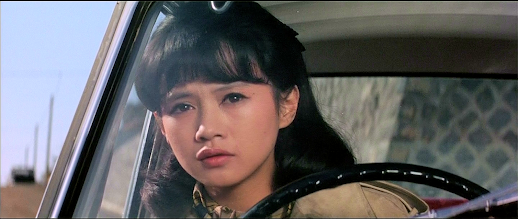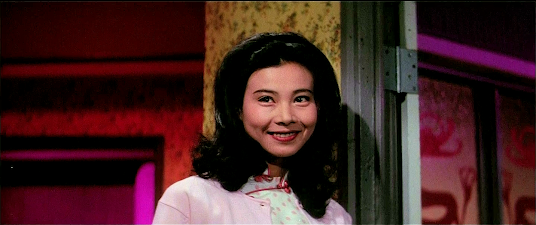 |
| Chishu Ryu |
Yamaki (Chishu Ryu) is a typical middle-aged salaryman who has worked his way up into a comfortable senior management position. He’s been married to Nobuyo (Nobuko Otowa) for 28 years, has four adult daughters and is a creature of habit who rarely deviates from his daily routine. As his younger brother and subordinate co-worker Kosuki (Hiroyuki Nagato) says, he’s ‘as ordinary as radishes and carrots’.

Hiroyuki Nagato and Nobuko Otowa
However, problems begin to pile up – a friend (Kinzo Shin) has cancer but hasn’t been told, Kosuki has embezzled money from the company and is expecting Yamaki to bail him out, and he’s been getting into increasingly aggressive arguments with his best friend, Suzuka (Isao Yamagata), to whose son his youngest daughter (Mariko Kaga) is sngaged.
One day, his family are shocked when he fails to return from work. Unbeknownst to them, he’s gone off to Osaka, where he becomes involved with a cheerful call girl (Miyuki Kuwano) and her eccentric pimp (Daisuke Kato), who also has a Chinese medicine business he wants Yamaki to come in on with him…
This Shochiku comedy features an all-star cast which also includes Ineko Arima, Mariko Okada and Yoko Tsukasa as Yamaki’s other three daughters as well as Ryo Ikebe and Shima Iwashita, although some of these big names (especially Ikebe) are given precious little to do. At the beginning of the film, we’re presented with statistics informing us that over 80, 000 people go missing per year in Japan – a phenomenon which seems an odd topic for comedy. The film originated from an idea by Yasujiro Ozu, no less, who took his inspiration from a short story by Ryunosuke Akutagawa entitled ‘Yamagamo’, which centres around a quarrel between two old friends, and worked up a treatment with his regular collaborator Kogo Noda which remained unfinished. It seems likely that the theme of a man who goes missing was added later by credited screenwriters Yoshio Shirasaka and Minoru Shibuya, the latter of whom directed the film (his penultimate feature).

Nobuko Otowa and Mariko Okada

Shima Iwashita
Although this is actually the first film I’ve seen by Shibuya, he was known for somewhat cynical comedies and it’s clear that Daikon to ninjin is far closer to his usual style than it is to Ozu’s. In fact, one of the pleasures of the film is seeing its unlikely lead, Chishu Ryu, send up all those ‘perfect father’ roles he played for Ozu over the years. There’s also some surprisingly frank sexual dialogue that would not have been found in an Ozu picture. While Yamaki’s disappearance is not really given sufficient motivation, and the film does seem a rather messy, cobbled-together affair, it remains quite entertaining and likeable, and certainly worth a watch for anyone with an affection for the Japanese actors of the era.
Thanks to A.K.





No comments:
Post a Comment